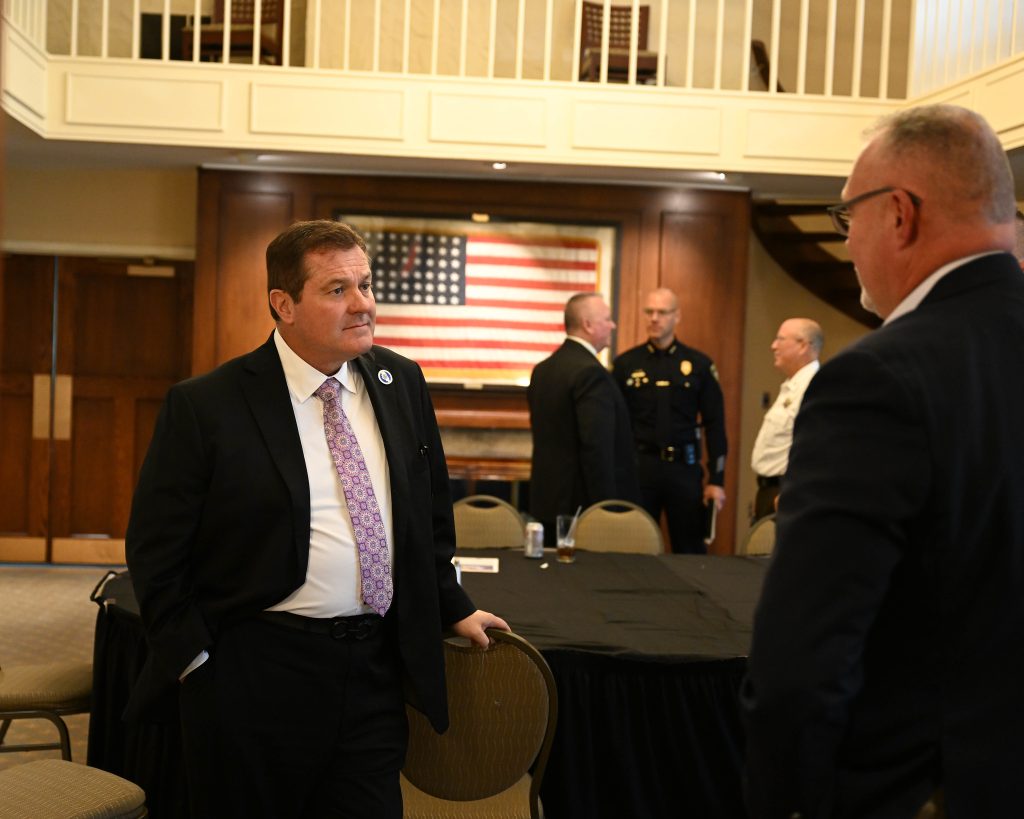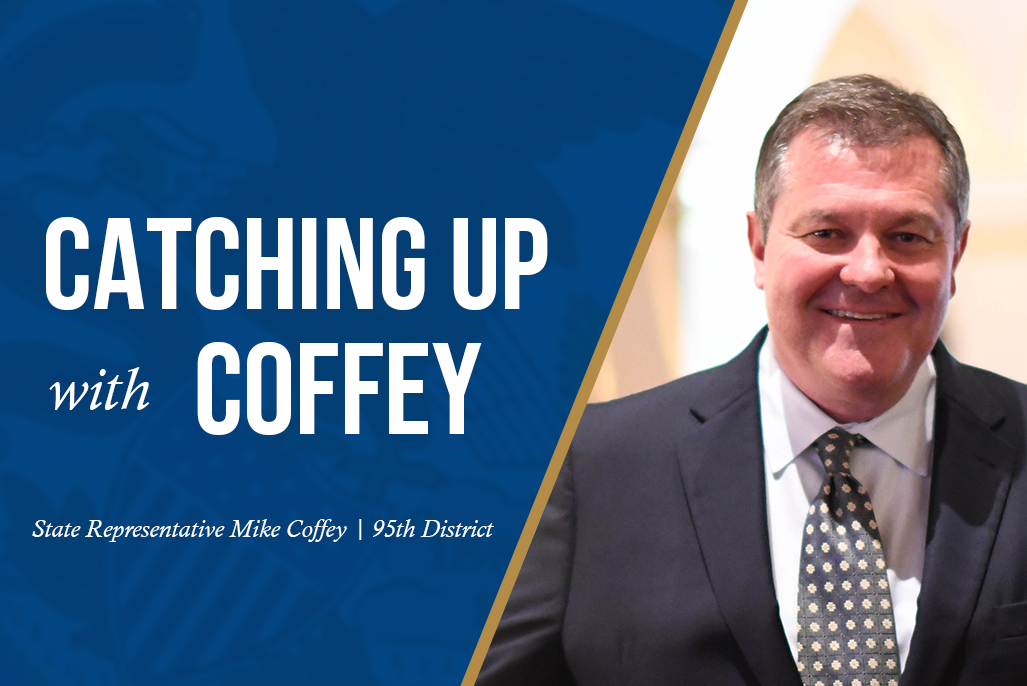Illinois Crime
Proposed Illinois law would cut all prison sentences in half: ‘Fair’ or ‘outrageous’? A proposed bill could grant JoAnn Cunningham – who is serving 35 years for killing her 5-year-old son AJ in their Crystal Lake home – freedom after completing only half her sentence.
Should the measure become law, it also could free the child’s father, AJ Freund Sr., who was sentenced to 30 years for crimes tied to his son’s murder, after serving 15. His term currently is ordered to be served at 85%, which would keep him in prison for about 25 years.
Those are only two examples of what would happen should House Bill 5219, sponsored by state Rep. Barbara Hernandez, a Democrat from Aurora, and co-sponsors Kevin John Olickal and Lilian Jiminez, becomes law. The measure, if passed during the so-called lame-duck session in January, would allow incarcerated people who’ve been convicted of even the most egregious felonies – including first-degree murder, aggravated predatory criminal sexual assault of a child and driving under the influence of alcohol or a controlled substance resulting in death – to serve only half the imposed sentence.

“Improving public safety in Illinois is one of my priorities and this proposed bill would actually increase threats throughout our communities. If someone commits a crime they need to be held accountable for their actions and not rewarded with a gift of reduced penalties.”
Under the current truth-in-sentencing laws, most prison terms in Illinois, except for those for murder, are not served in full. Convictions for offenses of DUI, sexual abuse, sexual assault and weapons charges are required to be served at 50%, 75% or 85%, depending on the class of the felony and details of specific cases. This new proposed law would require that all prison terms – regardless of the crime – be served at 50%, including murder, except where a term of natural life is imposed. The law would work retroactively, reducing sentences of those already serving time in prison, lawmakers said.
Read more on this story from Shaw Media.
Sober consequences: Unexpected fallout from the end of cash bail. A rural county sheriff said he supports the theory behind Illinois’ law that ended cash bail: You shouldn’t get out of jail just because you have money, while someone without money stays locked up.
But he wants changes.
It’s been almost a year since cash bail ended in Illinois, and Whiteside County Sheriff John Booker said the flawed rollout has unintended consequences – and it’s costing lives.
Under the reformed system, most suspects are released unless they’re accused of the most serious crimes.
“Just send them back out in the street — that isn’t helping anybody,” he said. “We’re unfortunately in a sad situation. We’re getting a lot of overdoses. People are dying.”
Most crimes in Whiteside County are committed by people with substance abuse problems, he said. They used to get treatment in the jail. Now, many are back on the streets using the next day.
“Possession of methamphetamines, say, for instance, that isn’t a detainable offense. So what are we doing for these people that have a serious addiction to methamphetamines?”
According to the National Institute on Drug Abuse, 65% of jail inmates have a substance abuse disorder. Another 20% were under the influence when they committed their crime.
“Before they were coming in jail, and temporarily, at least they were staying clean. All we’re doing is setting them right back out in the street to continue their addiction and commit other crimes.”
Read the rest of this report from KWQC TV6.
JOBS
The unemployment rate is up in all 14 Illinois metropolitan areas. Over-the-year, total nonfarm jobs increased in five metropolitan areas, decreased in six, and was unchanged or nearly unchanged in three for the year ending June 2024, according to data released last month by the U.S. Bureau of Labor Statistics (BLS) and the Illinois Department of Employment Security (DES). Over-the-year, the unemployment rate increased in all fourteen metropolitan areas.
The metro areas which had the largest over-the-year percentage increases in total nonfarm jobs were the Champaign-Urbana MSA (+1.5%, +1,700), the Carbondale-Marion MSA (+1.4%, +800), and the Bloomington MSA (+0.9%, +900). The metro areas which had the largest over-the-year percentage decreases in total nonfarm jobs were the Decatur MSA (-1.4%, -700), the Springfield MSA (-1.4%, -1,500), and the Rockford MSA (-1.3%, -1,900). The Danville MSA and the Illinois section of St. Louis MSA each had change in total nonfarm jobs, while the Chicago-Naperville-Arlington Heights Metropolitan Division saw almost no change in total nonfarm jobs.
Industries that saw job growth in a majority of metro areas included Government (nine areas) and Private Education and Health Services (eight areas).
The metro areas with the largest unemployment rate increases were the Chicago Metro Division (+1.7 points to 6.4%), the Danville MSA (+1.6 points to 7.5%), followed by the Bloomington MSA (+1.1 points to 5.3%) and the Carbondale Marion MSA (+1.1 points to 5.8%).
IDFPR Announces Plans for New Digital Licensure Process for Working Professionals in Illinois. The Illinois Department of Financial and Professional Regulation has reached an agreement to secure a new professional licensing system for individuals whose careers require a license to work in Illinois.
With a focus on increased government transparency, the new licensing system will feature a user-friendly interface with improved communications and creates a streamlined review of license applications and fees. Prospective licensees will be notified electronically when applications are received, reviewed, and licenses are issued by the Department.
IDFPR will announce the next steps related to the new licensing system as they become available. More information about professional licensing in Illinois may be found on IDFPR’s website: idfpr.illinois.gov.
Rep. Coffey is Fighting for Working Families in Illinois
As your State Representative, I have fought for commonsense solutions like lowering taxes and reducing the cost of living for working families.
I supported legislation to cut taxes, including on gas and groceries, voted to reduce energy costs, and fought for policies to grow our economy and attract job creators back to Illinois. Learn more…
